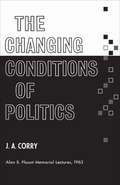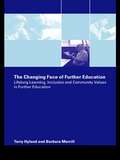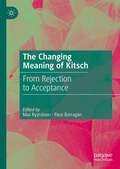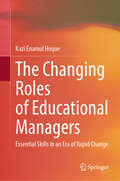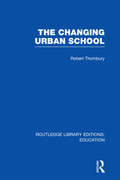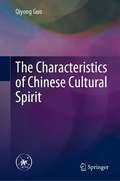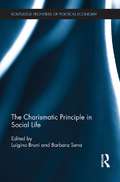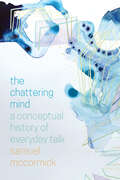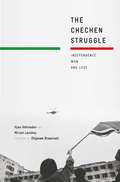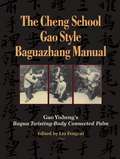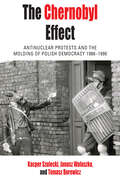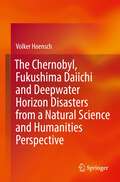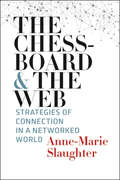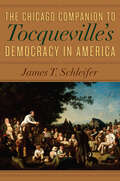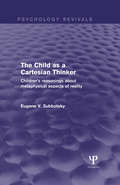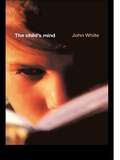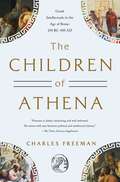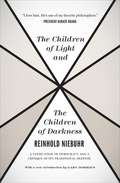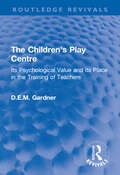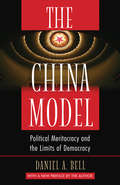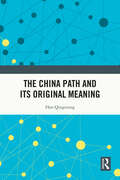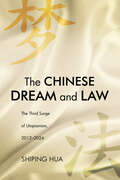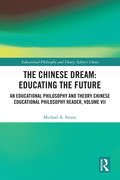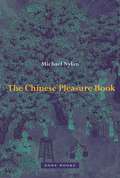- Table View
- List View
The Changing Conditions of Politics
by James CorryJ.A. Corry, one of Canada's outstanding political scientists, in the Alan B. Plaunt Lectures for 1963 has contributed a brilliant and provocative analysis of the changed world in which politics and students of politics must operate today. He suggests first that political studies can no longer be confined to the frame long held adequate. The eighteenth-century view of man as essentially rational suited an age of individualism and liberal optimism but is inadequate for politics in our mass society: here theology has something to contribute. Political science has in the past confined its attention to the operation of governments and political parties but has not for this age taken enough account of the influence of the social structure as a whole on political behaviour: here is where sociology may speak. With this background Principal Corry talks of the difficulties of understanding our present-day political ideas and theories hitherto usually relied on for the purpose. He goes on to look at some aspects of the collectivist, mass society we live in today and to consider how far these may be producing new dimensions in political behaviour.There is abroad today a mood of disenchantment and frustration because politics has disappointed us but ironically this mood may endanger such recovery of control as is open to us. Effective power is being gathered into relatively few hands. In this society where will the individual find confidence and self-reliance and a sense of responsibility? We face a dilemma in "the end of ideology," in the slipping of convictions about what can be achieved through politics, and this affects both governments, politicians and individuals. Answers to the many questions about human nature and society which this dilemma presents are not easy to find, but must be sought. The skill and power with which Principal Corry has marshalled the questions ensure our attention and concern.
The Changing Face of Further Education: Lifelong Learning, Inclusion and Community Values in Further Education
by Terry Hyland Barbara MerrillWhat are the values and policies which are driving the development of Further Education institutions?The rapid expansion and development of the post-compulsory sector of education means that further education institutions have to cope with ever-evolving government policies.This book comprehensively examines the current trends in further education by means of both policy analysis and research in the field. It offers an insightful evaluation of FE colleges today, set against the background of New Labour Lifelong Learning initiatives and, in particular, the links between college and community.This timely investigation of FE and New Labour policy, takes a unique community education perspective to determine whether the social objectives of current policy can be achieved by policy-makers, managers, staff and students in FE institutions.For students, lecturers and educators in the post-compulsory sector, in addition to policy-makers and managers, this is an invaluable source of information on a subject which is still largely under-researched.
The Changing Meaning of Kitsch: From Rejection to Acceptance
by Max Ryynänen Paco BarragánThis book inaugurates a new phase in kitsch studies. Kitsch, an aesthetic slur of the 19th and the 20th century, is increasingly considered a positive term and at the heart of today’s society. Eleven distinguished authors from philosophy, cultural studies and the arts discuss a wide range of topics including beauty, fashion, kitsch in the context of mourning, bio-art, visual arts, architecture and political kitsch. In addition, the editors provide a concise theoretical introduction to the volume and the subject. The role of kitsch in contemporary culture and society is innovatively explored and the volume aims not to condemn but to accept and understand why kitsch has become acceptable today.
The Changing Roles of Educational Managers: Essential Skills in an Era of Rapid Change
by Kazi Enamul HoqueThis book highlights the key competencies and coping mechanisms needed by educational managers in an era of rapid change on a national and international scale. It also posits and discusses how the heads of educational organizations, often classified as leaders, should be re-categorized as managers instead due to their broad range of duties and obligations. Finally, this book also provides a collection of essential tools, mechanisms, and principles for educational managers and practitioners at all levels in education.
The Changing Urban School (Routledge Library Editions: Education)
by Robert ThornburyThe author takes a long look at what goes on in schools, and the roles played by people specifically concerned with them: but finally the problems of the school are seen as indissolubly bound up with the changes that have overtaken urban life. The school cannot be isolated, teachers, administrators, planners and parents must actively co-operate in making the school work in society and a society which works for the school. Nothing other than such a total vision, he concludes, will enable us to achieve normal educational goals. Robert Thornbury writes out of fifteen years experience of the urban school and of the problems not only of Britain but also those sometime similar, often more acute, of other countries, in particular the United States and Australia. The need for a total urban strategy is worldwide. His point of view is broad-based but his sympathies lie most of all with the hard-working teacher who stayed on in the urban classroom. It is a book for teachers therefore, but also, by its own argument, for all concerned with the future of the inner-city and the reordering of education.
The Characteristics of Chinese Cultural Spirit
by Qiyong GuoThis book discusses issues like the characteristics of Chinese cultural spirit, life wisdom of Confucianism, Buddhism, and Daoism, the management wisdom of traditional Chinese culture, features of Chinese philosophy, as well as the definition of guoxue, or Chinese studies. Referring to previous research, the author defines the characteristics of the traditional Chinese cultural spirit as creating harmony amid diversity and viewing the outside world with a broad mind; being vigorous and self-motivated with tenacious vitality; taking benevolence and righteousness as supreme and being independent; considering people as the basis of the nation; thinking systematically and dialectically; and being pragmatic and thrifty. This book is beneficial to studies on cultural awareness, civilization comparison, as well as civilization exchange.
The Charismatic Principle in Social Life (Routledge Frontiers of Political Economy)
by Luigino Bruni Barbara SenaMax Weber laid the foundations for the meaning of ‘charisma’ in modern secular usage. This new volume argues for the importance of the ‘charismatic principle’ in history, economics and society. This volume brings together a number of contributors at the cross section between economics, theology, sociology and politics in order to set a research agenda for the following issues: What does it means to have a ‘charism’? How does it work in society? How might one distinguish a ‘charism’ from a talent? Are ‘charism’s given only to "special" people, or are they also present in ordinary people? Is a ‘charism’ necessarily associated with religion, or, is it, as we submit, possible to imagine ‘charisms’ at work within a secular perspective? Which are the principle perspectives of the role of ‘charisms’ in social history? How have the ‘charisms’ of noted personalities (e.g., Benedict, Francis, Gandhi) changed economic and social history? What insights might be drawn from ‘civil charisms’ such as the cooperative movement, non-profit organizations, social economy, and values-based organizations? This book seeks to answer these questions through the employment of an interdisciplinary perspective, which examines the theme of the charismatic principle in social life in different fields of application.
The Chattering Mind: A Conceptual History of Everyday Talk
by Samuel McCormickFrom Plato’s contempt for “the madness of the multitude” to Kant’s lament for “the great unthinking mass,” the history of Western thought is riddled with disdain for ordinary collective life. But it was not until Kierkegaard developed the term chatter that this disdain began to focus on the ordinary communicative practices that sustain this form of human togetherness. The Chattering Mind explores the intellectual tradition inaugurated by Kierkegaard’s work, tracing the conceptual history of everyday talk from his formative account of chatter to Heidegger’s recuperative discussion of “idle talk” to Lacan’s culminating treatment of “empty speech”—and ultimately into our digital present, where small talk on various social media platforms now yields big data for tech-savvy entrepreneurs. In this sense, The Chattering Mind is less a history of ideas than a book in search of a usable past. It is a study of how the modern world became anxious about everyday talk, figured in terms of the intellectual elites who piqued this anxiety, and written with an eye toward recent dilemmas of digital communication and culture. By explaining how a quintessentially unproblematic form of human communication became a communication problem in itself, McCormick shows how its conceptual history is essential to our understanding of media and communication today.
The Chechen Struggle
by Zbigniew BrzezinskiTold from the perspective of its former Foreign minister, this is a uniquely candid account of Chechnya's struggle for independence and its two wars against Russia which will revise our understanding of the conflict and explain how it continues. Features new insights, intimate portraits of key personalities and a foreword by Zbigniew Brzezinski.
The Cheng School Gao Style Baguazhang Manual: Gao Yisheng's Bagua Twisting-Body Connected Palm
by Gao Yisheng Vincent Black Liu Fengcai John GroschwitzIn its first English-language edition, this detailed training manual is a complete guide to Gao baguazhang, as preserved through the lineage of Liu Fengcai. The youngest of the major bagua lineages, Gao bagua shows the influence of taiji quan, xingyi quan, and shuai jiao. It incorporates traditional bagua weapons, pre-heaven palms, and animal forms in addition to sixty-four individual post-heaven palms and their accompanying two-person forms. A unique synthesis of health-building techniques, Daoist theory, and practical fighting applications, Gao-style bagua is an example of the finest internal-arts traditions.The original manuscript for The Cheng School Gao Style Baguazhang Manual was completed by the art's founder, Gao Yisheng, in 1936. It was not published at the time, but handed down to his student Liu Fengcai, who edited and published the first Chinese edition in 1991 with the help of his own student Liu Shuhang. In 2005, Liu Shuhang published a revised and expanded version, and this was again expanded and reissued in a third edition in 2010. Now, the manual has been translated and fully updated for its first English-language edition. Including over 400 photos showing step-by-step techniques and forms, the manual documents the fundamentals of the art as well as detailed descriptions of techniques and empty-hand forms, laying the groundwork for advanced training. This edition includes rare photos of important masters in the Gao lineage, lineage charts, biographies, and other updates, making it the essential companion for anyone studying Gao style and a useful guide for any practitioner of baguazhang or other Chinese martial arts.From the Trade Paperback edition.
The Chernobyl Effect: Antinuclear Protests and the Molding of Polish Democracy, 1986–1990 (Protest, Culture & Society #32)
by Kacper Szulecki Tomasz Borewicz Janusz WaluszkoThe 1986 Chernobyl catastrophe was not only a human and ecological disaster, but also a political-ideological one, severely discrediting Soviet governance and galvanizing dissidents in the Eastern Bloc. In the case of Poland, what began as isolated protests against the Soviet nuclear site grew to encompass domestic nuclear projects in general, and in the process spread across the country and attracted new segments of society. This innovative study, combining scholarly analysis with oral histories and other accounts from participants, traces the growth and development of the Polish anti-nuclear movement, showing how it exemplified the broader generational and cultural changes in the nation’s opposition movements during the waning days of the state socialist era.
The Chernobyl, Fukushima Daiichi and Deepwater Horizon Disasters from a Natural Science and Humanities Perspective
by Volker HoenschIn our everyday imaginations we use the laws of nature with their tremendous possibilities of technical progress for the benefit of mankind. The three catastrophes of Chernobyl (26 April 1986), Fukushima Daichii (11 March 2011) and in the Gulf of Mexico, explosion of the drilling platform Deepwater Horizon (20 April 2010), have shaken this world view. Who directed this development? Is it a matter of human error or technical failure? For the answer, approaches from the natural sciences and the humanities are presented.
The Chessboard and the Web: Strategies of Connection in a Networked World
by Anne-Marie SlaughterFrom a renowned foreign-policy expert, a new paradigm for strategy in the twenty-first century In 1961, Thomas Schelling's The Strategy of Conflict used game theory to radically reenvision the U. S. -Soviet relationship and establish the basis of international relations for the rest of the Cold War. Now, Anne-Marie Slaughter--one of Foreign Policy's Top 100 Global Thinkers from 2009 to 2012, and the first woman to serve as director of the State Department Office of Policy Planning--applies network theory to develop a new set of strategies for the post-Cold War world. While chessboard-style competitive relationships still exist--U. S. -Iranian relations, for example--many other situations demand that we look not at individual entities but at their links to one another. We must learn to understand, shape, and build on those connections. Concise and accessible, based on real-world situations, on a lucid understanding of network science, and on a clear taxonomy of strategies, this will be a go-to resource for anyone looking for a new way to think about strategy in politics or business.
The Chicago Companion to Tocqueville's Democracy in America
by James T. SchleiferOne of the greatest books ever to be written on the United States, "Democracy in America" continues to find new readers who marvel at the lasting insights Alexis de Tocqueville had into our nation and its political culture. The work is, however, as challenging as it is important; its arguments can be complex and subtle, and its sheer length can make it difficult for any reader, especially one coming to it for the first time, to grasp Tocqueville's meaning. "The Chicago Companion to Tocqueville's "Democracy in America"" is the first book written expressly to help general readers and students alike get the most out of this seminal work. Now James T. Schleifer, an expert on Tocqueville, has provided the background and information readers need in order to understand Tocqueville's masterwork. In clear and engaging prose, Schleifer explains why "Democracy in America" is so important, how it came to be written, and how different generations of Americans have interpreted it since its publication. He also presents indispensable insight on who Tocqueville was, his trip to America, and what he meant by "equality," "democracy," and "liberty. " Drawing upon his intimate knowledge of Tocqueville's papers and manuscripts, Schleifer reveals how Tocqueville's ideas took shape and changed even in the course of writing the book. At the same time, Schleifer provides a detailed glossary of key terms and key passages, all accompanied by generous citations to the relevant pages in the University of Chicago Press Mansfield/Winthrop translation. "The ""Chicago Companion" will serve generations of readers as an essential guide to both the man and his work.
The Child as a Cartesian Thinker: Children's Reasonings about Metaphysical Aspects of Reality (Psychology Revivals)
by Eugene V. SubbotskyOriginally published in 1996, this book presents and analyses children’s reasonings about fundamental metaphysical problems. The first part describes dialogues with children that were constructed on the basis of Descartes’ Mediations on First Philosophy and which look at children’s ideas about the relationships between true and false knowledge, mental images and physical objects, mind and body, personal existence and the external world, dreams and reality, and the existence of the Supreme Being, among others. The second part of the book draws on concepts that children of various ages have about psychological and metapsychological aspects of human reality such as: cognitive and moral development; personal freedom and responsibility; the relationships between conscious and unconscious; living and non-living; and about the fundamental drives of an individual for development and expansion of his or her needs and passions, for eternal life, and for the dreamlike world of fulfilled wishes. The book presents a systematic empirical and theoretical study of the problems, some of which were touched on in Piaget’s early writing but which he later abandoned and which were only sporadically illuminated by other authors, whereas others were completely new to research in developmental psychology at the time. It will still be a helpful guide for developmental psychologists, teachers, educationalists, social workers, lawyers, and other professionals interested in the knowledge that 4- to 14-year-old children have about the most fundamental aspects of reality and human beings.
The Child's Mind
by John WhiteHow does a child's mind work? And what should parents know about it to help them in their daily interaction with children?This book is a fascinating, non-technical introduction to the mental life of the child. Written in a simple, accessible way for those without an academic background in philosophy, the book explores and explains key elements of the child's mind without overwhelming the reader with complicated theories. Some of the areas discussed are: how children learn concepts the acquisition of beliefs, skills, knowledge and understanding the place of memory can we teach thinking skills? what is intelligence? imagination and creativity the development of emotion connections between home life, education and the school curriculum.
The Childhood Of Art (European Perspectives: A Series In Social Thought And Cultural Criticism)
by Sarah KofmanThe Childhood of Art: An Interpretation of Freud's Aesthetic
The Children of Athena: Greek Intellectuals in the Age of Rome: 150 BC-400 AD
by Charles FreemanA brilliant, fascinating portrait of the intellectual tradition of Greek writers and thinkers during the Age of Rome.In 146 BC, Greece yielded to the military might of the Roman Republic; sixty years later, when Athens and other Greek city-states rebelled against Rome, the Roman general Lucius Cornelius Sulla destroyed the city of Socrates and Plato, laying waste to the famous Academy where Aristotle had studied. However, the traditions of Greek cultural life continued to flourish during the centuries of Roman rule that followed—in the lives and work of a distinguished array of philosophers, doctors, scientists, geographers, and theologians. Charles Freeman's accounts of such luminaries as the physician Galen, the geographer Ptolemy, and the philosopher Plotinus are interwoven with contextual "interludes" that showcase a sequence of unjustly neglected and richly influential lives. A cultural history on an epic scale, The Children of Athena presents the story of a rich and vibrant tradition of Greek intellectual inquiry across a period of more than five hundred years, from the second century BC to the start of the fifth century AD.
The Children of Light and the Children of Darkness: A Vindication of Democracy and a Critique of Its Traditional Defense
by Reinhold NiebuhrThe Children of Light and the Children of Darkness, first published in 1944, is considered one of the most profound and relevant works by the influential theologian Reinhold Niebuhr, and certainly the fullest statement of his political philosophy. Written and first read during the prolonged, tragic world war between totalitarian and democratic forces, Niebuhr’s book took up the timely question of how democracy as a political system could best be defended. Most proponents of democracy, Niebuhr claimed, were “children of light,” who had optimistic but naïve ideas about how society could be rid of evil and governed by enlightened reason. They needed, he believed, to absorb some of the wisdom and strength of the “children of darkness,” whose ruthless cynicism and corrupt, anti-democratic politics should otherwise be repudiated. He argued for a prudent, liberal understanding of human society that took the measure of every group’s self-interest and was chastened by a realistic understanding of the limits of power. It is in the foreword to this book that he wrote, “Man’s capacity for justice makes democracy possible; but man’s inclination to injustice makes democracy necessary.”This edition includes a new introduction by the theologian and Niebuhr scholar Gary Dorrien in which he elucidates the work’s significance and places it firmly into the arc of Niebuhr’s career.
The Children's Play Centre: Its Psychological Value and its Place in the Training of Teachers (Routledge Revivals)
by D.E.M. GardnerFirst published in 1937, The Children’s Play Centre is an account of Gardner’s Play Centre and her work in assessing its value in the education of children and the training of teachers. The book puts forward the value of play in the development of children and provides a detailed report of Gardner’s experiment. It also explores the significance of the Play Centre to the technique of training students. It will have lasting relevance for those interested in the history of education and the psychology of education.
The China Model: Political Meritocracy and the Limits of Democracy
by Daniel A. BellWesterners tend to divide the political world into "good" democracies and "bad" authoritarian regimes. But the Chinese political model does not fit neatly in either category. Over the past three decades, China has evolved a political system that can best be described as "political meritocracy." The China Model seeks to understand the ideals and the reality of this unique political system. How do the ideals of political meritocracy set the standard for evaluating political progress (and regress) in China? How can China avoid the disadvantages of political meritocracy? And how can political meritocracy best be combined with democracy? Daniel Bell answers these questions and more.Opening with a critique of "one person, one vote" as a way of choosing top leaders, Bell argues that Chinese-style political meritocracy can help to remedy the key flaws of electoral democracy. He discusses the advantages and pitfalls of political meritocracy, distinguishes between different ways of combining meritocracy and democracy, and argues that China has evolved a model of democratic meritocracy that is morally desirable and politically stable. Bell summarizes and evaluates the "China model"--meritocracy at the top, experimentation in the middle, and democracy at the bottom--and its implications for the rest of the world.A timely and original book that will stir up interest and debate, The China Model looks at a political system that not only has had a long history in China, but could prove to be the most important political development of the twenty-first century.
The China Path and its Original Meaning
by Han QingxiangThis book examines the fundamental issues of Marxism in the 21st century and explores its contributions through the explanatory framework of the unity of continuity and stages, spatial and temporal analysis, and the dialectical relationship of universality and particularity of Marxist historical development. Marxism in the 21st century is a concept closely related to the historical changes of capitalism and the historical shift of the centre of the socialist movement. Marxism in the 21st century should be developed on the basis of the continuation of the fundamental position, value orientation, ideals and beliefs, basic principles and methodological principles of Marxism. This book explores the logic of the development of modernisation in contemporary China and the world, the communication and interaction between contemporary China and the world, and the coexistence of socialism and capitalism. It also examines the relationship between the adaptation of Marxism to the Chinese context, Marxism in contemporary China and in the 21st century. The book also discusses Xi Jinping's Thought on Socialism with Chinese Characteristics for a New Era, which provides a scientific theoretical system for interpreting the contemporary world and could become the core theoretical form of Marxism in the 21st century. The book will be essential reading for students and scholars of Marxism, Chinese studies and modernisation theory.
The Chinese Dream and Law: The Third Surge of Utopianism, 2012–2024
by Shiping HuaAnalyzes the major laws promulgated during the Xi Jinping era against a background of the politics and ideology of the Xi regime in general.The Chinese Dream and Law study situates the Chinese Dream in the modern utopianism discourse since the Late Qing, following Kang Youwei and Mao Zedong. As a tool to promote the Chinese Dream, the legal reforms during the period depart from the "thin constitutionalism" of the first three decades of the post-Mao era and resemble aspects of Legalism. Although the current regime has made some progress in protecting people's socioeconomic rights through law, it has retreated on upholding judicial independence to protect people's civil and political rights, especially those vis-à-vis the state. The first three decades since post-Mao reform are an aberration that deviates from the normal trajectory of modern Chinese political development. The decade-long efforts by the current regime have slowed the growing official corruption and have slightly narrowed the growing income gap, although economic growth was cut in half. The Chinese style of utopianism could mean a "better place"—as in the country's ancient past. It could also become a "no place" in the modern diverse world because this human hope that has a universal claim is often built on authoritarian means.
The Chinese Dream: An Educational Philosophy and Theory Chinese Educational Philosophy Reader, Volume VII (Educational Philosophy and Theory: Editor’s Choice)
by Michael A. PetersThis edited collection is based on a series of articles written by Michael A Peters as Editor-in-Chief of Educational Philosophy and Theory to explore the concept of The Chinese Dream first introduced by President Xi in 2012. This seventh volume in the Editor's Choice series provides a philosophical and historical analysis of The Chinese Dream by analyzing its major intersecting narratives - liberal, Confucian and Marxist. With chapters covering higher education strategy, social governance, socialist rule of law, the US-China trade war, technological unemployment and the emergence of the Chinese techno-state, this volume also offers an introduction to Chinese philosophy and history, and its narrative re-crafting that presents China as a global power. The author calls this process and the emerging Chinese narratives 'Educating the Future'.
The Chinese Pleasure Book
by Michael NylanThis book takes up one of the most important themes in Chinese thought: the relation of pleasurable activities to bodily health and to the health of the body politic. Unlike Western theories of pleasure, early Chinese writings contrast pleasure not with pain but with insecurity, assuming that it is right and proper to seek and take pleasure, as well as experience short-term delight. Equally important is the belief that certain long-term relational pleasures are more easily sustained, as well as potentially more satisfying and less damaging. The pleasures that become deeper and more ingrained as the person invests time and effort to their cultivation include friendship and music, sharing with others, developing integrity and greater clarity, reading and classical learning, and going home. Each of these activities is explored through the early sources (mainly fourth century BC to the eleventh century AD), with new translations of both well-known and seldom-cited texts.
